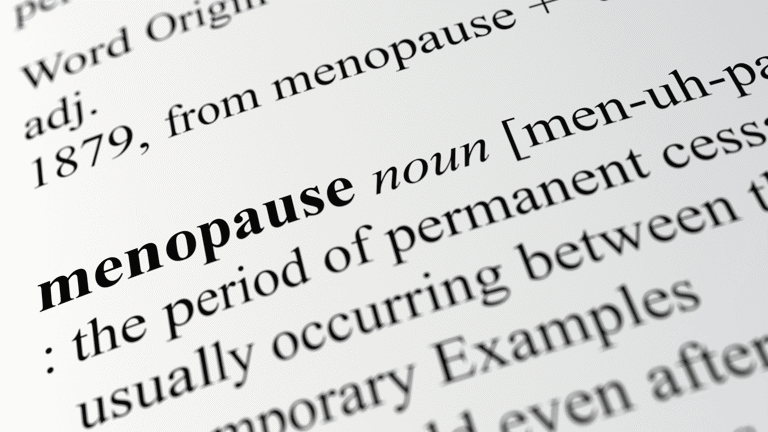In this article, Claire Brook, a Partner in our Employment Law team highlights the updates in cases relating to menopause at work, which is becoming one of the key focus areas for HR leaders.
It comes following an emergence of case law highlighting the disadvantage faced by workers experiencing the menopause.
Over recent months and years, HR teams have been busy focusing on Covid compliance and emergency pandemic planning, with many forced to prioritise this over equality training and other important aspects of HR.
For some employers, that’s caused equality training to “fall down the priority list” – a trend that cannot continue.
Claire recommends that business leaders and directors must quickly get up to speed with the developments and the “many HR risks” surrounding the menopause – a matter fast becoming recognised as one of the biggest workplace equality issues.
Recent high profile cases
A number of recent high-profile cases related to the menopause have highlighted how employees are pursuing discrimination claims following their treatment in the workplace.
Speaking at Aaron & Partners’ HR Lunch Club – ‘Menopause in the Workplace’ event, Claire advised businesses to develop a strategy to support workers and where possible, prevent issues before they arise.
She said: “It’s been a long time coming, but menopause has finally become an important issue for employers to consider – particularly given the number of workers who will be affected by menopause.
“A menopause policy is a fantastic place to start, but not many companies have this in place. Other important steps include raising awareness and organising staff training around the topic of menopause, encouraging dignity and respect and ensuring teams are aware of their obligations to each other, in particular to avoid inappropriate jokes, and even just ensuring rooms are well ventilated.
“Society is now more willing to discuss personal issues such as the menopause, whereas previous generations would have been less likely to be open about such matters.
“It’s so important to be able to talk openly and respectfully about it.
“Many employers will be identifying their budget for a year’s worth of training now and looking at what to focus on. I would highly recommend that Equality training including appropriate reference to the menopause is included.”
Menopause and the law
In July 2021 the Women and Equalities Commission launched an enquiry into workplace issues surrounding the menopause to examine existing discrimination legislation and workplace practices.
The move was designed to assess whether enough is being done to prevent women suffering adverse consequences as a result of the menopause; to present recommendations to address gender inequality and to assess whether menopause should become a protected characteristic in its own right under the Equality Act 2010.
At present, individuals pursuing discrimination complaints relating to the menopause must issue age, sex and/or disability discrimination claims to seek redress under the Equality Act 2010.
Case law has already found that perimenopause (Ms M Davies v Scottish Courts and Tribunal Service, 2018) can be a disability, with the employee’s dismissal arising in consequence of her symptoms.
Another case (Donnachie v Telent Technology Services, 2020) found that the substantial effect of menopause symptoms including hot flushes accompanied by palpitations and anxiety had impacted negatively on the Claimant’s ability to perform day to day activities. The judge in her findings said she could “see no reason” why typical menopausal symptoms “[could not] have the relevant disabling effect on an individual”.
So, should businesses be making reasonable adjustments for the menopause in the workplace?
Ms Brook said: “Legally, if one of your employees meets the definition of disability, then yes, you’d be under a positive duty to make reasonable adjustments.
“But in any event, regardless of whether there’s a legal obligation to do so, it would be a positive step to consider appropriate support and adjustments for employees going through menopause.”
The consequences of ‘banter’
She also advised businesses to warn staff about the consequences of what at first seems to be harmless banter, but which could cause serious issues such as formal complaints (including harassment), an erosion of trust and confidence in the workplace, sickness absence and increased attrition in addition to the financial and reputational costs of claims.
“It’s all about raising awareness among work groups, which has required specific upskilling and appropriate managed thought in terms of awareness raising around what is appropriate within the workplace,” she added.
She pointed to a case (A v Bonmarche Ltd 2019) where the claimant succeeded in her claims for age and sex discrimination after being subject to inappropriate comments, including being called a “dinosaur”, and was continually criticised in front of others. Her colleagues were found to have picked up on the smallest of mistakes, linking them to her being menopausal, which was held to be unlawful harassment.
A complaint was upheld on the grounds of both sex and age harassment, with the employee awarded almost £28,000 in compensation for loss of earnings and ‘injury to feelings’.
8 steps to avoid HR pitfalls relating to menopause at work
Claire has advised employers to follow these eight steps to avoid the potential HR pitfalls surrounding menopausal employees:
- Consult employees regarding your approach to supporting workers with menopause
- Create a menopause policy
- Provide regular awareness training for staff and incorporate menopause into your equality, dignity and respect training schedule
- Appoint a ‘menopause champion’ or committee to help communicate messaging and coordinated training
- Encourage teams to avoid inappropriate jokes or ‘banter’
- Ensure you have a supportive culture in place
- Consider health and safety risk assessments for those individuals within the workplace who are experiencing menopause, just as you would undertake a stress or pregnancy risk assessment
- Update relevant policies such as Anti-Harassment and Bullying, Gossiping, Dignity at Work, Equality and Diversity, Flexible Working and Data Protection
Need specialist legal advice?
If you have been affected by a menopause related issue at work or you are seeking employment law or HR advice for yourself or an organisation, please don't hesitate to contact our team.
We advise on all aspects of employment and HR law and help businesses, organisations and individuals achieve their objectives. To get in touch please complete the form below or give us a call.
Key Contact

Claire Brook
Employment Law Partner
Claire advises a wide range of employers on all aspects of employment law, from recruitment and employment, through to complex dismissals and representation at employment tribunals.
Need to Speak to Someone?
Use the form to send us some details about your matter and one of our experts will get in touch, or you can call us using the number below.
01244 405555




